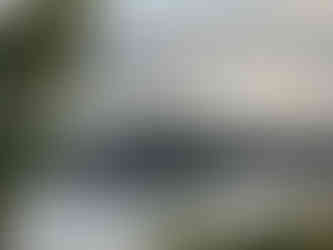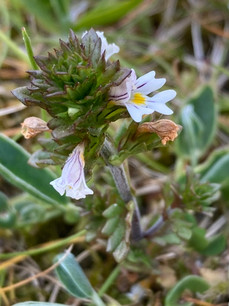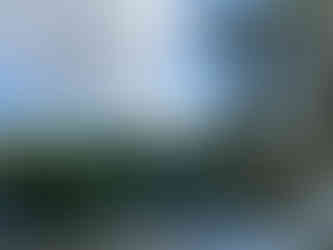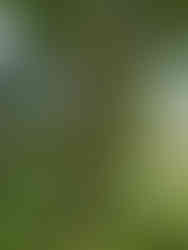10 Stunningly Beautiful Places to Study Herbal Medicine in Ireland

Earlier this year, I had the good fortune to join Wild Routes Ireland on their Bealtaine Blossoms tour, to learn about the native woodlands, ecology, and herbal medicine traditions of the Emerald Isle. This photo essay highlights just a few of the beautiful places we visited and studied.
1. Our journey began at the Slieve Aughty Center and organic garden, Co. Galway.
We gathered fresh rose petals and hawthorn leaves & flowers, and distilled them in this classic copper alembic, to make a Rose-Hawthorn hydrosol.
2. Irish Seed Savers Association, Co. Clare

Irish Seed Savers Association maintains the country’s only public seed bank, with over 600 non-commercially available varieties of seed. The national collection of Irish heritage apple trees is housed in their orchards, with over 180+ unique varieties.
The Association is also devoted to preserving a native Irish woodland and wildlife sanctuary. Some of the varieties in the Native Irish Woodland are Alder, Ash, Silver Birch, Bird Cherry, Hazel, Holly, Rowan, Oak, Scots Pine, White beam, Spindle and Willow. These trees are important sources of food, medicine, shelter, and are considered sacred in Irish lore, both historic and contemporary.
3. The Burren, Co. Clare

The Burren is a unique landscape of glacio-karst limestone formations with a geologic history dating back to the Carboniferous period, some 330 million years ago.
Burren = Bhoirne or boireann = rocky country.
A designated UNESCO Global Geopark, the Burren is a biodiversity hotspot. Of Ireland's 900 native plant species, 70% of them can be found here! Ireland has 28 native orchid species, and 24 of them exist in the Burren.
The remnants of St. Colman's sanctuary and oratory can be found at Eagle's Rock, Slieve Carran. Dating to about 600 A.D., these ancient stones are now softened by the many orchids and wildflowers found in this region.
4. Lough Avalla walk, Co. Clare
The Lough Avalla Farm loop trail covers more of the limestone formations, and old hazel forests, including a holy well. Organic farmer Harry Jeuken describes the wellspring as a gathering place since pre-history. Standing in the presence of this regal Hawthorn tree, in the center of an ancient ring fort, is indeed a sublime moment of deep quiet and peace.
5. Glengarriff, Bantry Bay, Co. Cork
At the southwest foot of the island, the town of Glengarriff (Gleann Garbh = rugged glen) is perched on the edge of Bantry Bay. In the Blue Pool, swans and their cignets munch on seaweed. The Glengarriff Harbour and Woodlands Special Area of Conservation is a preserve of the ancient oak woodlands. It is notable as a home of Hiberno-lusitanian species, plants with an unusual distribution in southwestern Ireland and northern parts of Spain and Portugal.
6. Beara Peninsula, Co. Cork

View from Dunboy Castle on the Beara peninsula towards Bere island.
The ruins of the 15th-century Dunboy Castle now form a base for a multitude of wildflowers, including red clover, primrose and bluebells. Rewilding efforts are gaining momentum with initiatives to preserve native habitat.
7. Derrynane House & Beach, Co. Kerry

View from Derrynane Abbey, looking towards the Skellig Islands, across the turquoise blue waters of Derrynane Bay.
The gardens at Derrynane benefit from the warm Gulf Stream, supporting a range of tropical plants including tree ferns. The beaches and dunes are home to medicinal plants such as Eyebright (Euphrasia officinalis), Meadowsweet (Filipendula ulmaria), and native orchids.
Our guide for the day, herbalist Niall Hogan reminds us that, according to Mrs. Maude Grieve's herbal, Meadowsweet, Water-Mint and Vervain were three herbs held most sacred by the Druids. All three are local here. Abbey Island is home to the rare, protected Kerry Lily (Simethis planifolia).
8. Killarney National Park & Yew Forest, Co. Kerry
Muckross House in Killarney National Park;
view of Muckross Lake from the Reenadinna Yew Forest
The Irish Yew tree (Taxus baccata 'Fastigiata') is an evergreen conifer. It can grow to up to 30 ft (9m) and is long-lived. The Reenadinna Yew Forest is the only yew forest in Ireland; one of only three yew forests in Europe; and the largest of those three. The trees in the Reenadinna Forest may be 150-300 years old, however, yew trees have been growing in this location for some 5,000 years.
Scientifically, the Yew tree contains flavonoids that are a source of the chemotherapy drug paclitaxel. All parts of the tree are poisonous. There is a lot of lore around this ancient and sacred tree. It is often planted in cemeteries. It is associated with death, a protector of the dead, a portal to other realms.

9. Belfast Botanic Gardens, Northern Ireland

The Belfast Botanic Garden's glass Palm house was constructed between 1839-1852. The style and era are similar to my local Conservatory of Flowers in Golden Gate Park. The Tropical Ravine is another attraction of the Belfast Botanic Garden, housing a jungle-like atmosphere. Outdoors, the gardens feature a beautiful collection of roses. And perhaps my favorite, this Global Medicine Garden, featuring medicinal plants from different regions of the world.
10. National Botanical Gardens of Ireland, Co. Dublin


Architecture of the National Botanic Garden in Dublin: multiple glass houses! Created by Richard Turner, who also designed the Belfast Botanic Palm House.
I did a quick introductory tour of the National Botanic Gardens in an afternoon, but could easily come back here again and again. In addition to the Great Palm House, the Cactus and Succulent House, the Curvilinear Range, and the Victoria House (all glass houses containing different plant collections), the grounds include a replica of a Viking-era thatch-roof cottage and garden; a formal fruit & vegetable estate kitchen garden with lots of culinary herbs; a "Wild Ireland" native plants section; and a rambling forest with different plots designated for different species of trees, including Hazel, Hawthorn, Yew, and other revered trees. The Herbarium and Library is a plant nerd's dream, and I could easily get lost in there for countless days. This extensive garden is a national treasure.
BONUS: St. Anne's Physic Garden, Co. Dublin
Not far from the National Botanic Garden is this joint initiative between the Irish Register of Herbalists and Dublin City Council Parks Department. The garden was created to showcase traditional medicinal herbs and allow the public access to these wonderful healing plants. It was recommended to me, but unfortunately did not fit into my itinerary. Next time!
Environmental Sustainability is a primary theme in herbal medicine generally, and a focus of the Wild Routes Ireland tour. When enjoying these beautiful natural settings, please remember these guidelines:
Pack It In, Pack It Out
Take Only Pictures, Leave Only Footprints Leave No Trace ethics
Special Thanks to Tara, Chris, Fred, Oonagh, Andrew, Eddie, Deirdre, Jo, Niall, Ted, Doxy & Danny, and everyone at Wild Routes who made this return visit to my ancestral homelands so special. Slainté!
Learn More:











































































































































Dear Sheila, this is a terrific piece! The prose is beautifully written, and the photographs are gorgeous. Thank you for sharing this wonderful trip with me on your recent visit to New Mexico and teaching me so much about herbal medicine over the years. As an FYI, your blog still says Closed Temporarily due to Covid. I am happy to see that you are writing again. Jackie Laing